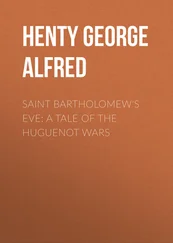George Henty - For the Temple - A Tale of the Fall of Jerusalem
Здесь есть возможность читать онлайн «George Henty - For the Temple - A Tale of the Fall of Jerusalem» — ознакомительный отрывок электронной книги совершенно бесплатно, а после прочтения отрывка купить полную версию. В некоторых случаях можно слушать аудио, скачать через торрент в формате fb2 и присутствует краткое содержание. Жанр: foreign_children, foreign_antique, foreign_prose, на английском языке. Описание произведения, (предисловие) а так же отзывы посетителей доступны на портале библиотеки ЛибКат.
- Название:For the Temple: A Tale of the Fall of Jerusalem
- Автор:
- Жанр:
- Год:неизвестен
- ISBN:нет данных
- Рейтинг книги:4 / 5. Голосов: 1
-
Избранное:Добавить в избранное
- Отзывы:
-
Ваша оценка:
- 80
- 1
- 2
- 3
- 4
- 5
For the Temple: A Tale of the Fall of Jerusalem: краткое содержание, описание и аннотация
Предлагаем к чтению аннотацию, описание, краткое содержание или предисловие (зависит от того, что написал сам автор книги «For the Temple: A Tale of the Fall of Jerusalem»). Если вы не нашли необходимую информацию о книге — напишите в комментариях, мы постараемся отыскать её.
For the Temple: A Tale of the Fall of Jerusalem — читать онлайн ознакомительный отрывок
Ниже представлен текст книги, разбитый по страницам. Система сохранения места последней прочитанной страницы, позволяет с удобством читать онлайн бесплатно книгу «For the Temple: A Tale of the Fall of Jerusalem», без необходимости каждый раз заново искать на чём Вы остановились. Поставьте закладку, и сможете в любой момент перейти на страницу, на которой закончили чтение.
Интервал:
Закладка:
G. A. Henty
For the Temple: A Tale of the Fall of Jerusalem
Preface
In all history, there is no drama of more terrible interest than that which terminated with the total destruction of Jerusalem. Had the whole Jewish nation joined in the desperate resistance made, by a section of it, to the overwhelming strength of Rome, the world would have had no record of truer patriotism than that displayed, by this small people, in their resistance to the forces of the mistress of the world.
Unhappily, the reverse of this was the case. Except in the defense of Jotapata and Gamala, it can scarcely be said that the Jewish people, as a body, offered any serious resistance to the arms of Rome. The defenders of Jerusalem were a mere fraction of its population–a fraction composed almost entirely of turbulent characters and robber bands, who fought with the fury of desperation; after having placed themselves beyond the pale of forgiveness, or mercy, by the deeds of unutterable cruelty with which they had desolated the city, before its siege by the Romans. They fought, it is true, with unflinching courage–a courage never surpassed in history–but it was the courage of despair; and its result was to bring destruction upon the whole population, as well as upon themselves.
Fortunately the narrative of Josephus, an eyewitness of the events which he describes, has come down to us; and it is the storehouse from which all subsequent histories of the events have been drawn. It is, no doubt, tinged throughout by his desire to stand well with his patrons, Vespasian and Titus; but there is no reason to doubt the accuracy of his descriptions. I have endeavored to present you with as vivid a picture as possible of the events of the war, without encumbering the story with details and, except as regards the exploits of John of Gamala, of whom Josephus says nothing, have strictly followed, in every particular, the narrative of the historian.
G. A. Henty.
Chapter 1: The Lake Of Tiberias
"Dreaming, John, as usual? I never saw such a boy. You are always in extremes; either tiring yourself out, or lying half asleep."
"I was not half asleep, mother. I was looking at the lake."
"I cannot see much to look at, John. It's just as it has been ever since you were born, or since I was born."
"No, I suppose there's no change, mother; but I am never tired of looking at the sun shining on the ripples, and the fishermen's boats, and the birds standing in the shallows or flying off, in a desperate hurry, without any reason that I can make out. Besides, mother, when one is looking at the lake, one is thinking of other things."
"And very often thinking of nothing at all, my son."
"Perhaps so, mother; but there's plenty to think of, in these times."
"Plenty, John; there are baskets and baskets of figs to be stripped from the trees, and hung up to dry for the winter and, next week, we are going to begin the grape harvest. But the figs are the principal matter, at present; and I think that it would be far more useful for you to go and help old Isaac and his son, in getting them in, than in lying there watching the lake."
"I suppose it would, mother," the lad said, rising briskly; for his fits of indolence were by no means common and, as a rule, he was ready to assist at any work which might be going on.
"I do not wonder at John loving the lake," his mother said to herself, when the lad had hurried away. "It is a fair scene; and it may be, as Simon thinks, that a change may come over it, before long, and that ruin and desolation may fall upon us all."
There were, indeed, few scenes which could surpass in tranquil beauty that which Martha, the wife of Simon, was looking upon–the sheet of sparkling water, with its low shores dotted with towns and villages. Down the lake, on the opposite shore, rose the walls and citadel of Tiberias, with many stately buildings; for although Tiberias was not, now, the chief town of Galilee–for Sepphoris had usurped its place–it had been the seat of the Roman authority, and the kings who ruled the country for Rome generally dwelt there. Half a mile from the spot where Martha was standing rose the newly-erected walls of Hippos.
Where the towns and villages did not engross the shore, the rich orchards and vineyards extended down to the very edge of the water. The plain of Galilee was a veritable garden. Here flourished, in the greatest abundance, the vine and the fig; while the low hills were covered with olive groves, and the corn waved thickly on the rich, fat land. No region on the earth's face possessed a fairer climate. The heat was never extreme; the winds blowing from the Great Sea brought the needed moisture for the vegetation; and so soft and equable was the air that, for ten months in the year, grapes and figs could be gathered.
The population, supported by the abundant fruits of the earth, was very large. Villages–which would elsewhere be called towns, for those containing but a few thousand inhabitants were regarded as small, indeed–were scattered thickly over the plain; and few areas of equal dimensions could show a population approaching that which inhabited the plains and slopes between the Sea of Galilee and the Mediterranean. None could then have dreamed of the dangers that were to come, or believed that this rich cultivation and teeming population would disappear; and that, in time, a few flocks of wandering sheep would scarce be able to find herbage growing, on the wastes of land which would take the place of this fertile soil.
Certainly no such thought as this occurred to Martha, as she re-entered the house; though she did fear that trouble, and ruin, might be approaching.
John was soon at work among the fig trees, aiding Isaac and his son Reuben–a lad of some fifteen years–to pick the soft, luscious fruit, and carry it to the little courtyard, shaded from the rays of the sun by an overhead trellis work, covered with vines and almost bending beneath the purple bunches of grapes. Miriam–the old nurse–and four or five maid servants, under the eye of Martha, tied them in rows on strings, and fastened them to pegs driven into that side of the house upon which the sun beat down most hotly. It was only the best fruit that was so served; for that which had been damaged in the picking, and all of smaller size, were laid on trays in the sun. The girls chatted merrily as they worked; for Martha, although a good housewife, was a gentle mistress and, so long as fingers were busy, heeded not if the tongue ran on.
"Let the damsels be happy, while they may," she would say, if Miriam scolded a little when the laughter rose louder than usual. "Let them be happy, while they can; who knows what lies in the future?"
But at present, the future cast no shade upon the group; nor upon a girl of about fourteen years old, who danced in and out of the courtyard in the highest spirits, now stopping a few minutes to string the figs, then scampering away with an empty basket which, when she reached the gatherers, she placed on her head and supported demurely, for a little while, at the foot of the ladder upon which John was perched–so that he could lay the figs in it without bruising them. But, long ere the basket was filled she would tire of the work and, setting it on the ground, run back into the house.
"And so you think you are helping, Mary," John said, laughing, when the girl returned for the fourth time, with an empty basket.
"Helping, John! Of course I am–ever so much. Helping you, and helping them at the house, and carrying empty baskets. I consider myself the most active of the party."
"Active, certainly, Mary! but if you do not help them, in stringing and hanging the figs, more than you help me, I think you might as well leave it alone."
Читать дальшеИнтервал:
Закладка:
Похожие книги на «For the Temple: A Tale of the Fall of Jerusalem»
Представляем Вашему вниманию похожие книги на «For the Temple: A Tale of the Fall of Jerusalem» списком для выбора. Мы отобрали схожую по названию и смыслу литературу в надежде предоставить читателям больше вариантов отыскать новые, интересные, ещё непрочитанные произведения.
Обсуждение, отзывы о книге «For the Temple: A Tale of the Fall of Jerusalem» и просто собственные мнения читателей. Оставьте ваши комментарии, напишите, что Вы думаете о произведении, его смысле или главных героях. Укажите что конкретно понравилось, а что нет, и почему Вы так считаете.












